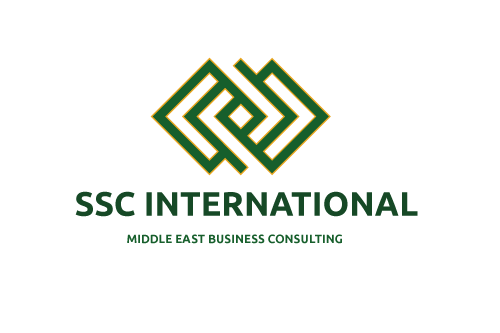Exploring Foreign Investment Potential in Saudi Arabia: Opportunities and Insights
Saudi Arabia, with its strategic location, vast resources, and ambitious economic reforms, presents a compelling case for foreign investors. As the country transitions from a primarily oil-dependent economy to a more diversified and sustainable model under its Vision 2030 initiative, it offers a range of opportunities across various sectors. This blog post delves into the potential for foreign investment in Saudi Arabia, highlighting key sectors, recent developments, and considerations for investors.
Vision 2030: A New Economic Paradigm
Saudi Arabia’s Vision 2030 is a comprehensive plan aimed at diversifying the economy, reducing dependency on oil, and fostering sustainable growth. The initiative outlines several key goals, including:
- Economic Diversification: Shifting focus from oil to other sectors such as technology, tourism, and renewable energy.
- Private Sector Growth: Encouraging private sector investment and entrepreneurship.
- Infrastructure Development: Investing in large-scale infrastructure projects to support economic growth and improve quality of life.
Key Investment Opportunities
1. Renewable Energy
Saudi Arabia is positioning itself as a leader in renewable energy, with plans to generate 50% of its power from renewable sources by 2030. This ambitious target creates significant opportunities for foreign investors in:
- Solar Power: Saudi Arabia’s abundant sunshine makes it an ideal location for solar energy projects. The country is investing heavily in solar farms and technologies.
- Wind Power: With its vast open spaces, Saudi Arabia is exploring wind energy projects to complement its renewable energy strategy.
- Green Hydrogen: The country is also focusing on green hydrogen production as a clean energy alternative, attracting interest from global energy firms.
2. Technology and Innovation
The tech sector in Saudi Arabia is rapidly evolving, driven by government initiatives to foster innovation and digital transformation. Opportunities for foreign investment include:
- Fintech: Saudi Arabia’s financial sector is undergoing digital transformation, with opportunities in digital banking, payments, and blockchain technology.
- Smart Cities: Investments in smart city projects, such as the NEOM mega-city, which aims to integrate advanced technologies and sustainable practices.
- ICT Infrastructure: Expanding internet connectivity and developing technology infrastructure to support a growing digital economy.
3. Tourism and Hospitality
Tourism is a major focus of Vision 2030, with the goal of attracting 100 million visitors annually by 2030. Key areas for foreign investment include:
- Tourist Destinations: Developing luxury resorts, historical sites, and entertainment venues to attract international tourists.
- Cultural Projects: Investing in projects that promote Saudi Arabia’s rich cultural heritage, including museums, art galleries, and cultural festivals.
- Hospitality Industry: Expanding the hotel and accommodation sector to cater to the increasing number of visitors.
4. Infrastructure and Construction
Saudi Arabia’s infrastructure development is a cornerstone of Vision 2030, offering opportunities in:
- Transportation: Investments in railways, highways, and airports to enhance connectivity and support economic growth.
- Real Estate: Opportunities in residential, commercial, and industrial real estate projects, driven by urban development and population growth.
- Mega Projects: Participation in large-scale projects like the Red Sea Development, Qiddiya entertainment city, and the King Salman Park.
5. Healthcare and Biotechnology
The healthcare sector is expanding rapidly, with a focus on improving medical services and advancing biotechnology. Opportunities include:
- Healthcare Facilities: Building and operating hospitals, clinics, and specialized medical centers.
- Biotechnology: Investing in research and development of biotech solutions, including pharmaceuticals and medical technologies.
Recent Developments and Reforms
Saudi Arabia has made significant strides in creating a more attractive environment for foreign investment:
- Ease of Doing Business: The government has streamlined regulations and improved the business environment to attract foreign investors. This includes simplifying business registration processes and reducing bureaucratic hurdles.
- Investment Incentives: Various incentives and support programs are available for foreign investors, including tax breaks, subsidies, and favorable financing options.
- Public-Private Partnerships: The government is actively promoting public-private partnerships (PPPs) to leverage private sector expertise and capital in key projects.
Considerations for Foreign Investors
While Saudi Arabia offers numerous opportunities, there are several considerations to keep in mind:
- Regulatory Environment: Navigating the regulatory landscape can be complex, so it’s essential to understand local laws and regulations and seek legal and business advice.
- Cultural Factors: Understanding Saudi Arabia’s cultural and business practices is crucial for successful operations and partnerships.
- Market Research: Conduct thorough market research to identify opportunities, assess risks, and develop strategies tailored to the local market.
Conclusion
Saudi Arabia’s Vision 2030 presents a transformative opportunity for foreign investors across various sectors. With its focus on economic diversification, infrastructure development, and technological advancement, the country is positioning itself as a key player in the global economy. By leveraging the opportunities in renewable energy, technology, tourism, infrastructure, and healthcare, investors can tap into Saudi Arabia’s growth potential and contribute to its ambitious economic goals.
As the country continues to evolve and attract international attention, Saudi Arabia offers a dynamic and promising landscape for foreign investment.



